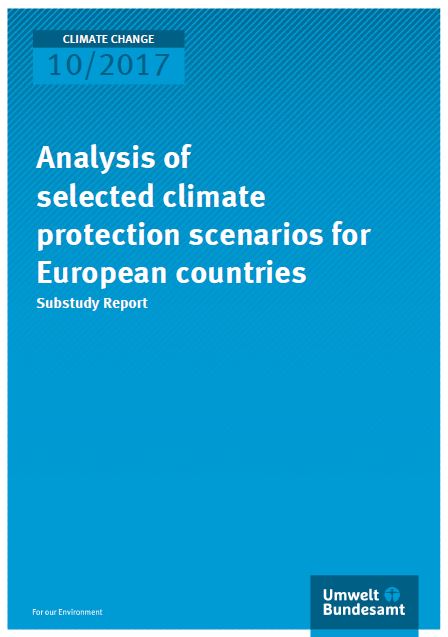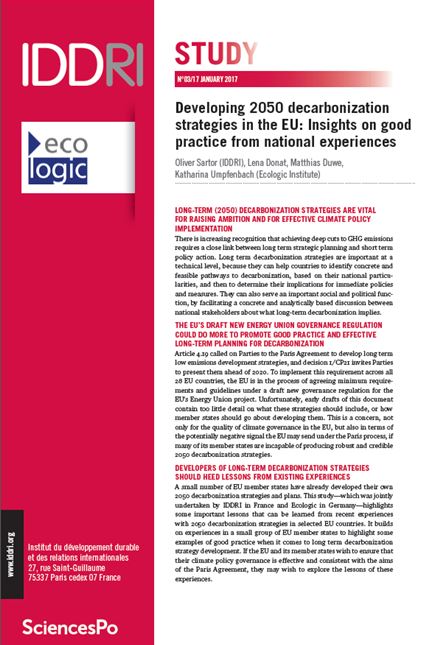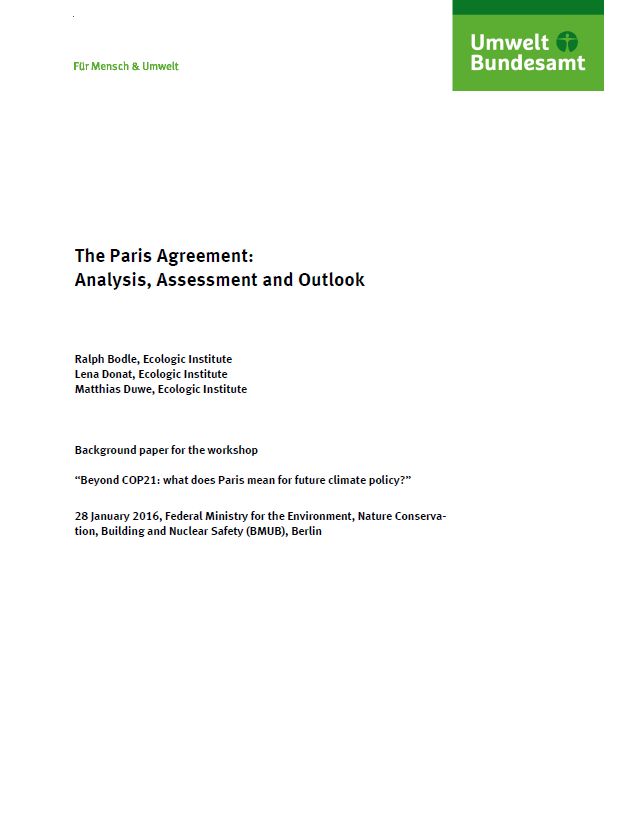Analysis of Selected Climate Protection Scenarios for European Countries
- Publication
- Citation
Duscha, Vicki, Jakob Wachsmuth and Lena Donat 2017: Analysis of selected climate protection scenarios for European countries. UBA Climate Change 10/2017. Umweltbundesamt: Dessau-Roßlau.
This paper explores six climate protection studies, namely for France, Italy, Poland, Sweden, United Kingdom and Germany. The authors, among them Ecologic Institute's Lena Donat, analyze objectives, results, modeling approaches, main assumptions and input parameters. The inclusions of long-term strategies in the Paris Agreement and in the European Commission’s proposal for a new regulation on the "Governance of the Energy Union" make this analysis very topical. The analysis is available for download.
The global economy needs to be decarbonised within the next decades in order to limit global temperature increase to well below 2°C. This requires a fundamental change of technological infrastructure, as well as a transformation of economic structures and of human behaviour.
Developing long-term visions of future economies is crucial for starting this transformation into a decarbonised future. In recent year, governments and NGOs have developed a number of long-term climate protection scenarios for different European countries. Such scenarios can inform policy making and the development of governments' long-term climate strategies. They can help to identify short-term policy needs, technology and infrastructure choices and make climate policy making more coherent, and ambitious.
The authors have analysed six of such scenarios. Some climate protection scenarios only achieve an overall greenhouse gas emission reduction of 60% while others envisage a complete phase-out by 2050 or even earlier. Emissions in the energy and building sector are reduced significantly in all countries, while agriculture, waste and transport remain an important emission source in 2050. Most studies build only to a limited extent on carbon removal technologies, and exclude nuclear power. Only few studies consider structural changes in the economy or behavioural changes.






